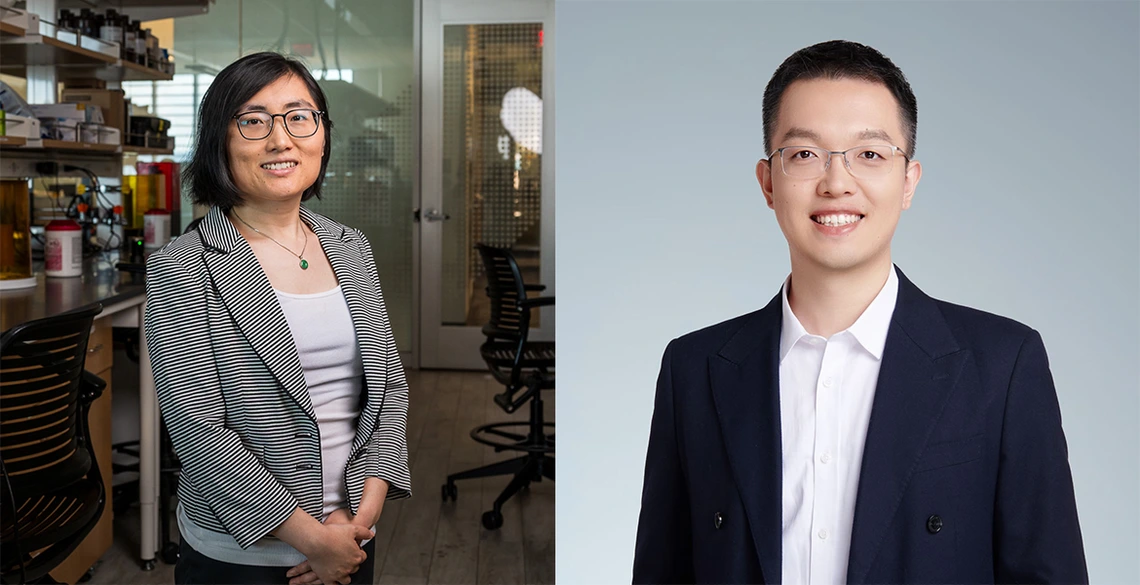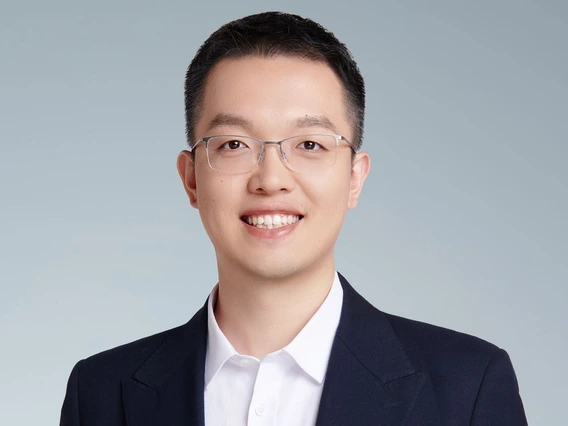Endowed Frank L. and Daphna Lederman Professorships celebrate college's ‘rising stars’
Early-career scholars Shang Song, assistant professor of biomedical engineering, and Xiaodong Yan, assistant professor of materials science and engineering, use funding to advance their fields with students in tow.

Inaugural title holders Shang Song and Xiaodong Yan show exceptional promise in biomedical engineering and materials science.
College of Engineering leadership selected assistant professors Shang Song and Xiaodong Yan as inaugural holders of the endowed Frank L. and Daphna Lederman Professorships. These three-year positions accelerate bold research in biomedical engineering and materials science.
David W. Hahn, the Craig M. Berge Dean of the college, said it's exceptional to have an endowment of this kind.
“I’m grateful to Frank and Daphna for recognizing Dr. Song and Dr. Yan as rising stars in their respective departments,” Hahn said. “This endowment provides critical resources to early-career researchers advancing strategic priorities such as quantum materials and biomedical engineering.”
Song, assistant professor of biomedical engineering, pioneers organ-on-chip systems and neuromodulation devices. Yan, assistant professor of materials science and engineering, is a leading expert in quantum materials, devices and artificial intelligence.
“A prime goal of this endowment is to help attract and retain the best faculty, and professors Song and Yan are exceptional. They have accomplished a great deal in such a short time, and we can’t wait to see what they do next,” Frank Lederman said.
Identifying therapies for rare diseases
Song, a BIO5 Institute member with a joint appointment in MSE, leads The Song Lab in developing novel medical interventions. Her endowed funds will directly support students, providing rare opportunities to model organs on chips.
“We can build blood-brain barrier-on-a-chip, a microphysiological system that allows us to observe how neurotrauma and neurodegenerative diseases compromise the brain's natural defenses,” Song said.
The blood-brain barrier regulates the passage of nutrients between cerebral blood and brain tissue. Replicating this highly selective system on a chip allows Song and her students to test drugs that can pass through the barrier to combat neurological diseases like Alzheimer’s.
Song, who also won the prestigious 2025 National Institutes of Health Director's New Innovator Award of $2.32 million, will develop an implantable neuromodulation device that initiates electrical signals to repair spinal cord injuries.
“This funding will help us build a vibrant research and training community and push the boundaries of our field.”
Creating quantum chips
Yan, who holds a joint appointment in the Department of Electrical and Computer Engineering and Wyant College of Optical Sciences, investigates electronic and photonic devices based on two-dimensional materials, as well as neuromorphic computing.
In September, he received a National Science Foundation CAREER Award of $599,980 to build moiré synaptic transistors, which mimic the region of the human brain that combines memory, logic and parallel processing.
Laying the groundwork for neuromorphic computers, these brain-inspired chips are stable at room temperature, retain data without power, and consume just 20 picowatts – billions of times less power than existing neuromorphic devices.
The Yan Research Group will hire undergrads and grads to refine chip designs, scale up fabrication methods and integrate them into systems such as robots and wearable devices.
“This professorship will provide vital support to expand these efforts, train students in cutting-edge research, and strengthen the University of Arizona’s leadership in engineering and materials science.”



